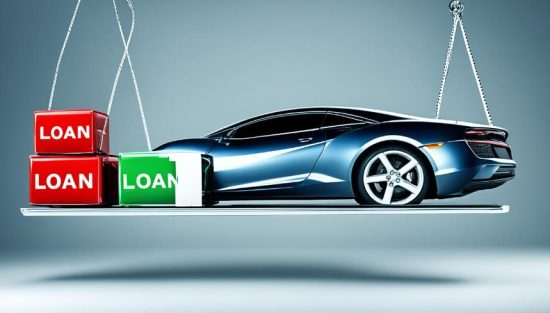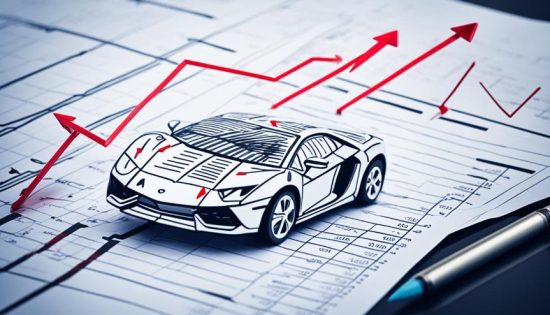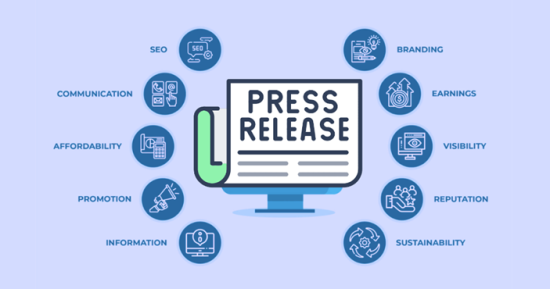
A profit and loss write off on a car loan occurs when a lender declares the remaining balance uncollectible due to borrower default, impacting their financial statements and potentially lowering the borrower’s credit score, affecting future borrowing ability. Exploring alternatives or seeking financial advice is crucial to mitigate these consequences.
What is an auto loan charge-off is?
An auto loan charge-off occurs when a lender writes off a car loan as uncollectible after a borrower defaults for an extended period, typically 120 to 180 days. This action severely impacts the borrower’s credit score and ability to secure future credit due to the perceived risk of default. It’s crucial to communicate with the lender to explore repayment alternatives and minimize the long-term consequences on creditworthiness.

Exploring Profit and Loss in the Context of Auto Financing
When considering auto financing, it’s essential to understand the concept of profit and loss. In the realm of car ownership, profit and loss statements play a crucial role in determining the financial health of individuals and companies. These statements serve as financial snapshots, providing insights into revenues, costs, and expenses.
The Basics of Profit and Loss Statements
Profit and loss statements, also known as income statements, are financial documents that outline the income and expenses of a business or individual. They provide a comprehensive overview of the financial performance over a specific period, typically a month, quarter, or year. Profit and loss statements help assess the profitability and sustainability of a car financing venture.
For auto financing, profit and loss statements include income sources related to car loans, such as interest income and fees. These statements also account for expenses, including administrative costs, loan defaults, and potential write-offs. By examining these statements, lenders can assess the creditworthiness of borrowers and make informed lending decisions.
Profit and Loss Implications for Car Owners
Profit and loss statements have significant implications for car owners. A profit and loss write-off occurs when a borrower defaults on their car loan, failing to meet their financial obligations. This non-payment results in a financial loss for the lender.
When a profit and loss write-off occurs, it can have severe consequences for car owners. These consequences may include legal actions, repossession of the vehicle, and difficulty obtaining future loans or credit. Additionally, a write-off can negatively impact the individual’s credit score, making it harder to secure favorable financing terms in the future.
What Triggers a Profit and Loss Write Off?
When it comes to car loans, there are certain triggers that can lead to a profit and loss write off. These triggers are typically associated with loan default scenarios, which occur when borrowers fail to make timely payments. Let’s explore these triggers in more detail.
Scenarios Leading to a Write Off
Loan delinquency is the primary scenario that can trigger a profit and loss write off. When borrowers consistently miss payments or fall behind on their loan obligations, lenders may deem the loan as uncollectible and initiate the write off process. Other scenarios that can result in a write off include significant financial hardship, bankruptcy filings, or even the unfortunate event of the borrower’s death.
Impact of Loan Default on Financial Statements
When a loan default leads to a write off, it has significant implications on a lender’s financial statements. The write off is recorded as an expense, reducing the company’s net income. This reduction in net income affects the lender’s profitability and can impact its ability to extend credit to other borrowers. Ultimately, the write off reflects the loss incurred by the lender due to the defaulting borrower.
What is a Profit and Loss Write Off on a Car Loan?

A profit and loss write off in car loans occurs when a lender declares the remaining balance as a loss due to borrower default, impacting the lender’s financial statements negatively. This signifies unrecoverable debt and can lead to stricter lending policies. For borrowers, it reflects non-payment and severely affects credit scores, making future credit access difficult. Maintaining timely payments is crucial to avoid such situations and preserve a positive credit standing.
The Tax Implications of a Car Loan Write Off
When you experience a car loan write off, it’s important to understand the tax implications that may arise. In this section, we will explore how write offs can affect your taxable income and provide guidance on navigating deductions related to car loan losses.
How Write Offs Affect Your Taxable Income?
When a car loan is written off as a loss, the canceled debt amount is generally treated as income for tax purposes. This means that you may be required to report the canceled debt on your tax return and potentially pay taxes on it. However, there are certain situations where you may be exempt from paying taxes on the canceled debt, such as when it qualifies for an exclusion under the Internal Revenue Code.
It’s essential to consult with a qualified tax professional to understand the specific tax implications of your car loan write off and determine any available exemptions or exclusions.
Navigating Deductions Related to Car Loan Losses
While a car loan write off may result in taxable income, there may also be opportunities for deductions related to the financial loss. Depending on the circumstances surrounding the write off, you may be eligible to deduct the loss as a business expense or claim a casualty loss deduction.
If the write off stems from a business-related vehicle, you can potentially deduct the loss as a business expense, subject to certain criteria and limitations outlined by the IRS. Additionally, if the write off occurs due to an accident or natural disaster, you may be able to claim a casualty loss deduction, which allows you to deduct losses that were not covered by insurance and exceed a certain threshold.
How a Write Off Affects Your Credit Score?
A car loan write off significantly impacts credit scores, staying on reports for up to seven years, affecting future credit options and indicating repayment issues. This signals higher perceived credit risk and potential difficulties in securing favorable loan terms, underscoring the importance of addressing debts promptly to mitigate long-term financial repercussions.

When Should You Consider a Write Off?
Before considering a write-off on your car loan, evaluate your financial position thoroughly. Start by assessing your income, expenses, and assets to gauge your ability to bring the loan current or negotiate alternative repayment options with your lender. Take into account any other outstanding debts that could impact your ability to meet loan payments. Additionally, weigh the costs and benefits of keeping the vehicle, including maintenance expenses and depreciation. Engage in strategic financial planning to align your decision with long-term goals and ensure it supports your overall financial well-being.
Alternatives to a Profit and Loss Write Off
When faced with the possibility of a profit and loss write off on your car loan, it’s important to explore alternative options before taking such a drastic step. Here are two viable alternatives to consider:
Restructuring Your Car Loan
If you’re experiencing financial difficulties and struggling to meet your car loan repayments, loan restructuring may provide a solution. With loan restructuring, you can modify the terms of your car loan to make it more manageable and affordable.
One common form of loan restructuring is a loan modification. This involves renegotiating the terms of your loan with your lender, including options such as extending the repayment period or reducing the interest rate. By restructuring your car loan, you can potentially lower your monthly payments and ease the burden on your finances.








